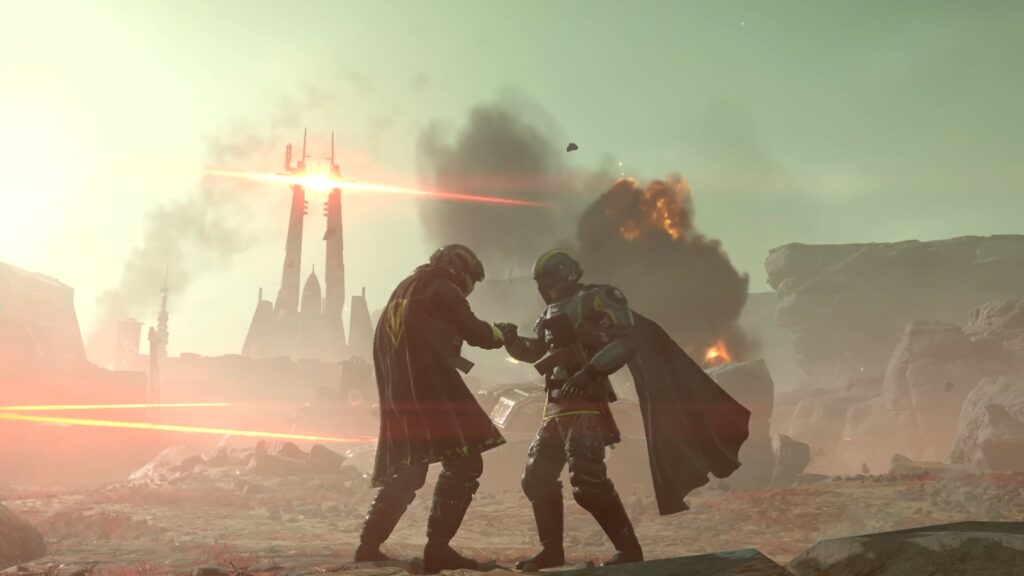
UPDATE: The landscape of gaming is shifting dramatically as the once fierce rivalry between Sony PlayStation and Microsoft Xbox appears to be nearing its end. For the first time, iconic titles like Helldivers 2 and Forza Horizon are crossing platforms, signaling the decline of console exclusivity. This rapid change is reshaping how gamers identify with their platforms and what the future of gaming holds.
The announcement of Halo coming to PlayStation has sent shockwaves through the gaming community, marking a pivotal moment in the industry’s evolution. No longer are players defined solely by their console choice; instead, the gaming experience is becoming more inclusive and accessible. The era of strict console generations, which reset every few years, is fading fast.
Game Pass is leading the charge for Microsoft, as the company emphasizes service over hardware. Microsoft is now focused on delivering its games across all screens—PC, cloud, and mobile—making the Xbox brand more about accessibility than a physical console. This shift suggests that the Xbox Series X may soon be viewed as just one option among many for accessing games, rather than a necessary hardware investment.
As PlayStation also embraces this change, it is beginning to release its previously exclusive titles on PC. Games like Horizon Zero Dawn and The Last of Us Part II are now available beyond the confines of its consoles, further blurring the lines of exclusivity. The transition from console-exclusive to timed-exclusive content is becoming increasingly common, as both platforms recognize the benefits of a more unified gaming community.
Additionally, the rise of handheld devices and cloud gaming is transforming the industry landscape. Devices like the PlayStation Portal and innovations such as GeForce Now are allowing players to enjoy console-quality gaming anywhere, leading to a fragmented but diverse gaming environment. The demand for portability is prompting both Sony and Microsoft to rethink their approach, focusing on flexibility rather than fixed hardware.
As we witness this evolution, the question remains: what does the future hold for consoles? While the PS5 and Xbox Series X are still powerful machines, their importance is diminishing in a gaming world that values access over exclusivity. The seamless integration of games, saves, and friends across devices is redefining the gaming experience, making the physical console less central to the identity of gamers.
Experts believe that the end of the console war could lead to a healthier gaming environment, where players of all backgrounds can connect without the barriers of traditional loyalties. The nostalgic magic of midnight console launches may fade, but the promise of a more unified gaming future offers new opportunities for enjoyment and collaboration.
The PS5 and Xbox Series X might be remembered as the last of their kind—consoles that defined an era of exclusivity and hardware identity. As we move forward, the focus will shift to cross-play and accessibility, paving the way for a gaming landscape without walls. This transformation is not just a technological shift; it is a cultural evolution that could lead to a more inclusive and engaging gaming community, free from the constraints of the past.
With gaming’s future now more connected than ever, the next decade promises exciting developments, making it an exhilarating time for players worldwide. As the barriers between platforms dissolve, the ultimate goal remains clear: to create a gaming experience that is truly accessible and enjoyable for everyone, regardless of their chosen device.





